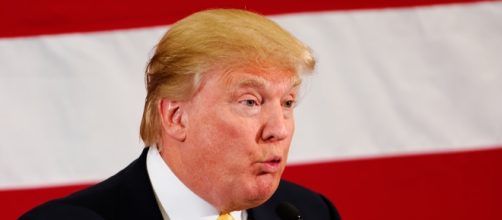Uber has had a rough year so far. Lack of top management aside, when CEO Travis Kalanick stepped down from President Donald Trump’s economic advisory council, it made everyone wonder whether the tech industry was getting extremely political. While many believed the move was a late response to Trump's immigration order that had resulted in the DeleteUber campaign, the decision also appeared to be based on internal issues. Following Kalanick's departure from the council, SpaceX co-founder Elon Musk tweeted his reasoning behind sticking to the policy forum.
When tech gets political
A widespread DeleteUber protest had erupted on social media when Uber tweeted that it had turned off surge pricing near the JFK airport. The company was under attack for trying to seek profits during a taxi worker striker. However, Uber claimed that it had publicized the surge pricing after the strike was over - a factual statement. But, it wasn't only the surge pricing issue near the airport that drove Uber consumers away. Reports suggest that at least 200,000 Uber accounts were deleted, adding pressure on then-CEO Kalanick.
While consumers were leaving the app in hordes, Kalanick's staff wasn't happy with their leader either. According to The New York Times, the CEO held a regularly scheduled all-hands meeting at the company’s San Francisco headquarters when he faced an onslaught of questions from his disappointed staff.
“What would it take for you to quit the economic council?” at least two employees asked him, referring to the President's travel ban. Yielding to the internal and external pressure, Kalanick finally made his decision, speaking to President and writing a letter to his staff confirming his leaving the council. If only he knew, this was too little too late ...
"Joining the group was not meant to be an endorsement of the President or his agenda but unfortunately it has been misinterpreted to be exactly that," he had said at the time.
Tech leaders' dilemma: support the President or listen to their consumers
In the current climate, it has become tricky for Silicon Valley leaders who are trying to appease the new administration while keeping their staff and consumers happy too - who belong to every nook and corner of the world and wouldn't really like the current US president's thoughts (and tweets) on various subjects
During his first meeting with the tech leaders, President Trump had promised an open line of communication.
But, the executive order(s) on travel ban was seen as a step that directly hit the tech industry which depends on global resources and talent. As the NYT pointed out, engaging with the president is typically good for businesses, but for companies like Uber that have a direct relationship with consumers bear the brunt of such open partnerships in this highly polarized political environment.
While Kalanick may believe that his joining the forum wasn't an endorsement of the President's policies, with policies like the latest travel ban that directly impact Silicon Valley's employees, consumers, and leaders (many of whom are immigrants), it would be harder to draw lines between politics for just good business and endorsing a President and all his policies.
Stigma of working at pro-Trump Silicon Valley companies
"Employees said they were concerned that Mr. Kalanick’s willingness to work with Mr. Trump after the immigration order would color Uber as a soulless company that cared only about its bottom line," the NYT reported. Kalanick's team told him that because of his decision to be on the Trump's advisory board, they had to suffer the stigma of working at Uber.
Kalanick emphasized that the change could only come through engagement. But, his employees weren't happy. The next day, the sent a 25-page document titled "Letters to Travis" to tell their leader that his decision to engage with the new administration was affecting them negatively.
Does the Silicon Valley want complete stop of communications with their new president
There's a growing - and justifiable - tension that by antagonizing the new administration, will the tech industry survive without benefits that the President is promising? Or, is the industry inviting even more of these anti-tech policies by not sitting on the same table with President Trump?
This is where people like Elon Musk come in. While it's arguably easier for people to delete Uber, it may not be as easy for Tesla consumers to ditch their gorgeous cars. Perhaps, the reason why Musk can take more long-term risks than Kalanick?
In a tweet earlier today, Musk reiterated what Kalanick told his employees: sitting on an advisory council doesn't mean you are endorsing "actions by the administration."
Regarding the meeting at the White House: pic.twitter.com/8b1XH4oW6h
— Elon Musk (@elonmusk) February 3, 2017
While critics on the left believe that Silicon Valley leaders like Musk and Kalanick are joining President's forums for business interests (true, of course), it needs to be considered that to help the new administration think about your global audience and employees, you "need" to sit at the same table and "talk".
As Apple CEO Tim Cook said, "you don't change things by just yelling." Wouldn't it be more sensible to try to negotiate with the President than "blanket ban" him - something that the people in Silicon Valley hate when it's done to them?


